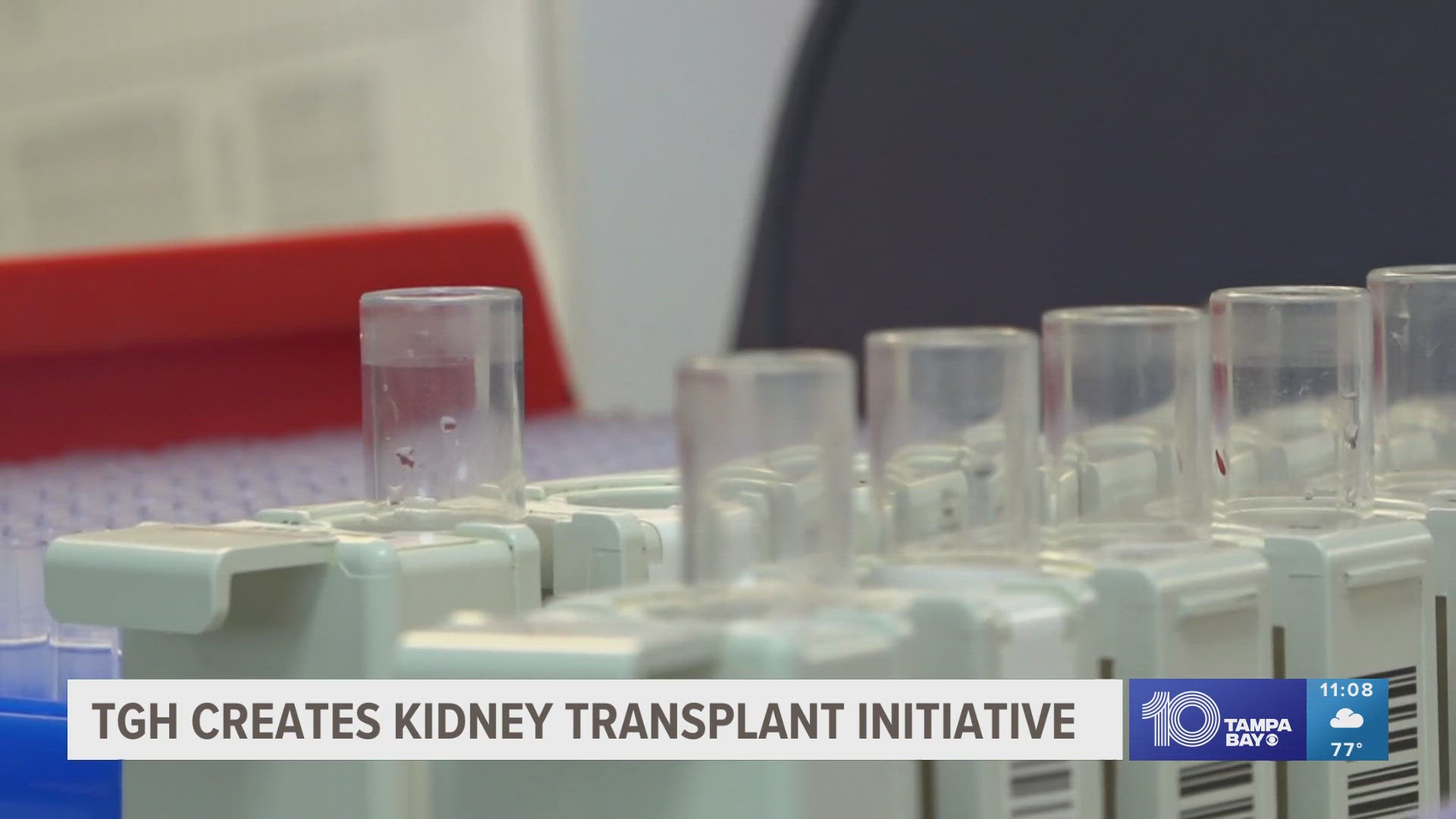TAMPA, Fla. — Tampa General Hospital is creating an outreach program to help more Black patients get kidney transplants.
Doctors found that racial bias in a widely used test kept thousands of Black people off the transplant list for decades.
Dr. Anthony Watkins with TGH said transplants centers in the U.S. switched to a race-neutral test this year and now they're adding more resources to erase the damage that was done.
“It was felt that people of color had more muscle mass which would artificially elevate the blood creatinine levels,” Dr. Watkins said.
Doctors found the old test used to check kidney function overestimated how well Black patients' kidneys were functioning making them appear healthier than they were.
“This posed a challenge because this was decreasing access to transplant because in order for a patient to get referred to transplant center function it has to be at a level of 20 or below,” Dr. Watkins said.
Now, with a new test in place, TGH is starting a transplant access program that will include a social worker and transportation for patients.
“So, we have providers within our center that will be the forward-facing interface with these patients to help increase their trust within the medical community,” Dr. Watkins said.
It’s something Krystle Pitts with the LifeLink Foundation believes is needed.
“There's some room for education, education on chronic kidney disease, education on dialysis in the long-term effects, and just in general about being an advocate for yourself as an African American,” Pitts said.
100,000 Americans are waiting for an organ transplant and 60% of the people on the waiting list are either Black or Hispanic, according to the LifeLink Foundation. Patient Patricia Wallace said many aren't even applying.
“I met people who been on dialysis for 15 to 20 years and it becomes lifestyle for them that they think they have to accept,” Wallace said.
She said TGH visited her church, and it helped a lot of her fears.
“They are striving to present to this world an option to life,” Wallace said.
The hospital said it's using money from a grant to help fund this program. Right now, it is still in the planning phase. It hopes to have things up and running by September.

